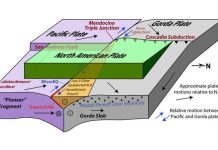Czesław Siekierski, Chairman of the Committee on Agriculture and Rural Development at the European Parliament, outlines how agriculture can benefit the environment…
The environmental aspect of farming, and in general the modern agribusiness, is continuously receiving more and more attention and the spread of good practices in agriculture benefits both the environment, and the quality of foodstuffs available to the consumers. Environmental concerns are relevant for many reasons, such as the future challenge of providing larger quantities of food for the growing world population, without putting too much pressure on natural resources, that could be depleted, as well as on climate and the environment.
The importance of the environmental aspect and the need to promote rational and intelligent agricultural solutions in rural areas can be illustrated by the formula of sustainable development that provides a variety of possibilities for improving the quality of the environment. The very notion of sustainability extends also to social aspects such as the creation of jobs, which is most important in areas where too many people are employed in agriculture, or where there is the risk of depopulation of rural areas with natural constraints.
For these reasons, we are forced to rethink our approach and practices connected with production, processing and storage, consumption as well as recycling and waste management. These measures need to be taken if the above mentioned future increase in the demand for food is to be met, but also to allow future generations to inherit a natural environment that is not degraded due to irresponsible exploitation. That is our responsibility and obligation towards those that will in the future take our place at the helm.
In order to build a sustainable world that could serve many generations to come, some of the key investments in rural areas should be in the sector of renewable energies, such as wind, solar and water power, as well as energy coming from managing waste in biogas plants. Such actions would have a positive effect on downsizing the emissions of greenhouse gases while creating new job opportunities in rural areas. Since investments in the energy sector are usually very costly, it is all the more important to actively promote prosumer energy generation that mainly serves to power individual households with the possibility of selling the surplus to the grid. In terms of the most significant investments there is the need to make use of public funds.
Yet another issue connected with basic resources in rural areas is the continuous degradation of soil. In order to fight this process, additional investments are needed in the area of melioration infrastructure, as well as an overall support of best practices that benefit the soil and prevent erosion and acidification. Another important issue that needs to be tackled is the loss of fertility that poses a problem for many actors in the sector of agriculture.
Already for a long time, the evolution of the Common Agricultural Policy has been oriented towards the implementation of measures, practices and solutions that are climate sensitive. The recent CAP reform has introduced the greening mechanism in the framework of the first pillar, the so called green payment amounting to 30% of the basic payment. The goal is to reward farmers for public goods they are providing to the society and the environment. However, there are several conditions that need to be met in order to be entitled for the green payment: the necessity to diversify crops, retain pastures, set up ecological focus areas or put in place other equivalent practices. Those not following the requirements will face penalties of up to 125% of the green payment. This would mean losing not only the green payment but also some of the basic payment. Some requirements are dependent on the size of the farm as those of up to 10 hectares are excluded from diversification and farms of up to 15 hectares do not need to set up ecological focus areas.
Pro-environmental actions are present also in the second pillar of the Common Agricultural Policy and constitute 30% of its budget. Actions that these funds are responsible for encouraging are: rebuilding, protection and strengthening of agricultural and forest ecosystems (biological diversity, water, soil), promotion of effective use of resources (water, energy), as well as providing support for the transition towards a low-carbon economy (the use of renewable energy sources, limiting the emission of greenhouse gasses, removal and storage of carbon dioxide).
Research and innovations are a very important aspect of the environmental and climate smart development of the agricultural sector. The EU Strategy “Europe 2020’’ emphasises the importance of promoting innovative solutions in bio-economy if we are to achieve both an intelligent and ecological growth in the EU. It is important for attaining more efficient use of renewable biological resources and causing less harm to the environment while retaining a competitive position on the global markets. At the same time, there is an ever growing development in terms of also looking at waste as an additional source of income for the EU economy if handled and processed properly.
Czesław Siekierski
Member and Chairman of the Committee on Agriculture and Rural Development
European Parliament
czeslaw.siekierski@europarl.europa.eu
http://www.europarl.europa.eu/meps/en/23787/CZESLAW+ADAM_SIEKIERSKI_home.html











